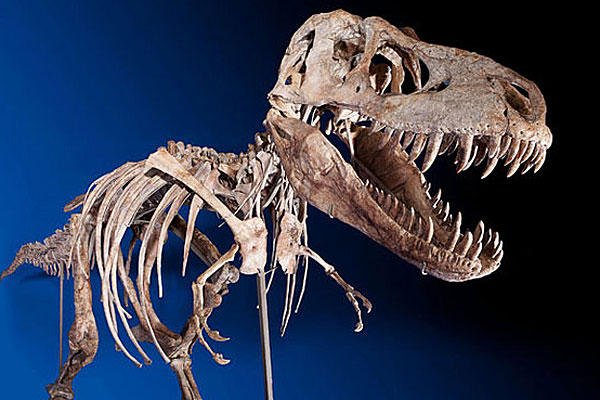
A row has broken out over the sale of a Tyrannosaurus Bataar skeleton at auction in New York.
The rare Tyrannosaurus Bataar, 7-metre long (23 ft), was bought by an anonymous bidder for more than $1 million in New York.
The sale went ahead despite protests from the Mongolian president.
Elbegdorj Tsakhia says the skeleton, unearthed in the Gobi Desert, came from Mongolia and that exporting fossils found in the country is illegal.
The auctioneers, Heritage Auctions, say the specimen was imported legally. A restraining court order in the name of Elbegdorj Tsakhia was put on the sale.

Tyrannosaurus Bataar is an Asian cousin of the meat-eating Tyrannosaurus Rex.
The skeleton in New York is thought to be one of the most complete and well preserved ever discovered.
“When it comes to dinosaurs, number one, dinosaurs in general are extremely rare. But the rarest of the dinosaurs are the carnivores, the meat eaters – the top of the food chain if you will,” David Herskowitz, director of natural history at Heritage Auctions, told APTV.
“And, of all the meat eaters that are out there, the most famous are the Tyrannosaurids. They are the most desirable, but they are the most elusive. They are the most difficult to find. Even though they are so big, there are not that many of them around.”
Found about seven years ago in the Gobi Desert, the T-Bataar remained in storage in England.
The T-Bataar was slightly smaller and had longer arms than its cousin, David Herskowitz said.
This is the second Tyrannosaurid to be sold at auction, says David Herskowitz. The first was a T-Rex named Sue sold in 1997 for more than $8 million.
Lawyers for the auction house say the sale did not break any US laws – but it will not be confirmed until it has been approved by a US court.
[youtube znWf3wk7dT8]